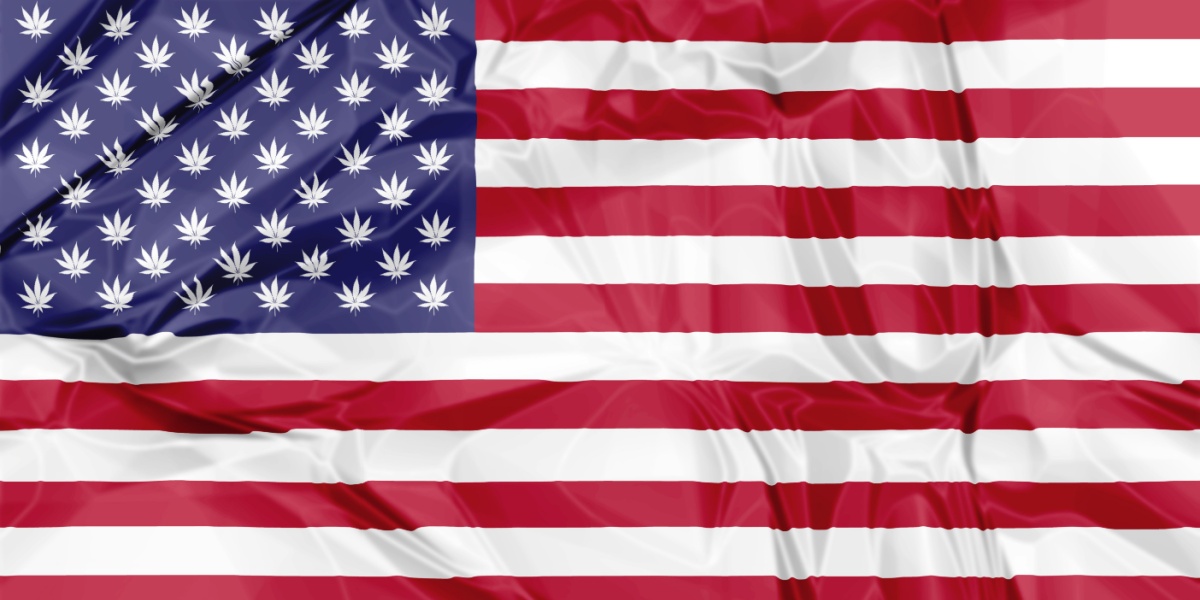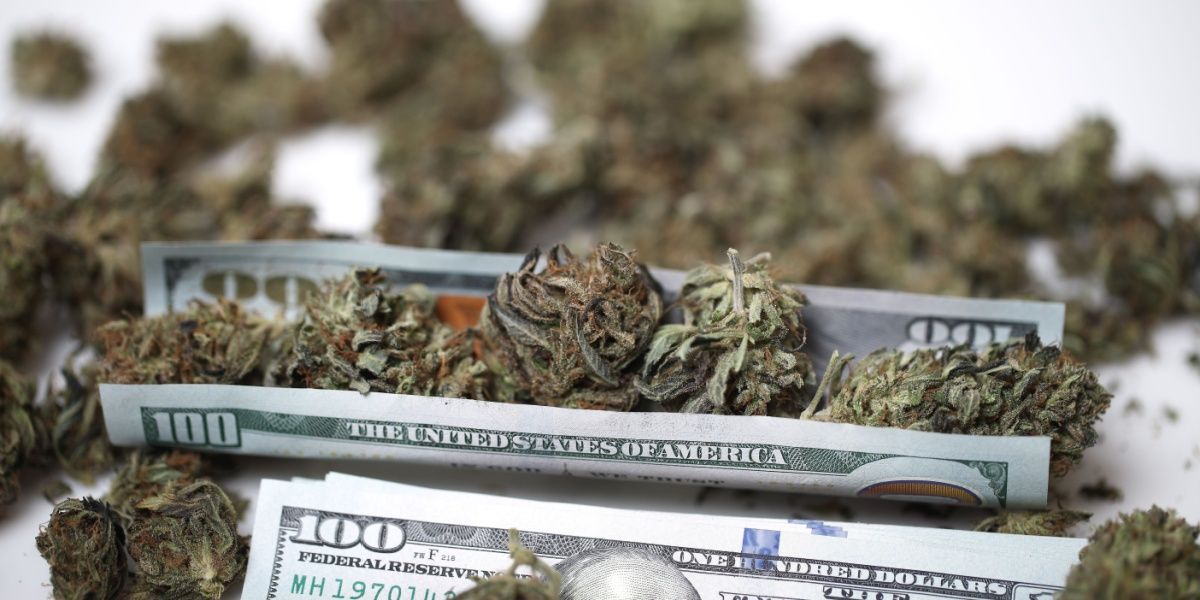The legal status of marijuana is changing rapidly throughout the country, which can make it confusing to know exactly what is legal and where. Our index will inform you exactly where marijuana is legal and in what context as of December, 2025.

Updated legizlation December 2025
On December 18, 2025, U.S. President Donald Trump issued an executive order directing the DEA and HHS to pursue the reclassification of marijuana as a Schedule III substance.[10] Although the order did not bring about an immediate change in drug policy or legislation, it is expected to lead to a reduction in cannabis’s scheduling status in the near future.[11]
As of June 26th, 2025, 40 states, three territories, and the District of Columbia allow the use of medical cannabis products.[9] 24 states also allow non-medical use, and eight have updated their medical use policies to include "low THC, high cannabidiol" products, which is explained below.[9]
Low-THC update
The eight states listed under CBD/Low-THC Program in the table below allow the use of these products for medical reasons in limited circumstances or as a legal defence. These "Low-THC Programs" are not designated as comprehensive medical cannabis programs. This has raised issues amongst regulatory bodies when trying to define exactly what "comprehensive" entails, with the NCSL currently using the following criteria.[9]
- Protection from criminal penalties for using cannabis for a medical purpose.
- Access to cannabis through home cultivation, dispensaries, or some other system is likely to be implemented.
- It allows a variety of strains or products, including those with more than "low THC."
- It allows either smoking or vaporization of some kind of cannabis products, plant material, or extract.
- It is not a limited trial program.
The growing popularity of legalized marijuana
Less than 15 years ago, marijuana use was illegal throughout the United States. With the growing application and popularity of medicinal marijuana as a means of treating chronic pain conditions and other medical concerns, the substance is now legal for medicinal use in 40 states. It is fully legal for use in 24 states and the District of Columbia, and is decriminalized in an additional seven states. [1][7]
Over this time, there has been a steep increase in the amount of marijuana use in the United States, with marijuana being the third highest type of substance abuse after tobacco and alcohol. In 2021, 11% of young adults reported using marijuana daily, compared to 6% in 2011. [2]
Medicinal marijuana has been able to help people manage painful conditions, like arthritis and cancer, and it has also contributed to economic growth. [7] In 2022, there was a 33% increase in marijuana-related jobs created within one year, with over 100,000 new jobs created since 2021. [3] Additionally, the worth of the legal marijuana industry was estimated at $33.6 billion in 2023 and is expected to reach over $76 billion by 2030. [4]
Earlier this year, it was reported that the Drug Enforcement Administration (DEA) had begun to implement actions that would move marijuana from Schedule I of the Controlled Substances Act to Schedule III. [8] This recognizes the medicinal benefits of marijuana, allowing its use in clinical trials. Although it would still be illegal on a federal level, penalization for the possession and use of marijuana would be reduced. [5]
States where marijuana is legal
Marijuana legalization continues to change across the country. Below is an up-to-date list (as of October 2025) of the legal status of marijuana, including whether it is legal for adult use, legal for medicinal purposes, or decriminalized (that is, no jail penalty and reduced fines for possession). [1][6]
(In this chart, CBD oil refers to oil made with small amounts of THC).
| State | Legal for Use | Legal for Medicinal Use | Decriminalized | CBD/Low-THC Program |
|---|---|---|---|---|
| Alabama | No | Yes | No | No |
| Alaska | Yes | Yes | Yes | No |
| Arizona | Yes | Yes | Yes | No |
| Arkansas | No | Yes | No | No |
| California | Yes | Yes | Yes | No |
| Colorado | Yes | Yes | Yes | No |
| Connecticut | Yes | Yes | Yes | No |
| Delaware | Yes | Yes | Yes | No |
| District of Columbia | Yes | Yes | Yes | Yes |
| Florida | No | Yes | No | No |
| Georgia | No | CBD Oil Only | No | Yes |
| Hawaii | No | Yes | Yes | No |
| Idaho | No | No | No | No |
| Illinois | Yes | Yes | Yes | No |
| Indiana | No | CBD Oil Only | No | Yes |
| Iowa | No | CBD Oil Only | No | Yes |
| Kansas | No | No | No | No |
| Kentucky | No | Yes | No | No |
| Louisiana | No | Yes | Yes | No |
| Maine | Yes | Yes | Yes | No |
| Maryland | Yes | Yes | Yes | No |
| Massachusetts | Yes | Yes | Yes | No |
| Michigan | Yes | Yes | Yes | No |
| Minnesota | Yes | Yes | Yes | No |
| Mississippi | No | Yes | Yes | No |
| Missouri | Yes | Yes | Yes | No |
| Montana | Yes | Yes | Yes | No |
| Nebraska | No | No | Yes | No |
| Nevada | Yes | Yes | Yes | No |
| New Hampshire | No | Yes | Yes | No |
| New Jersey | Yes | Yes | Yes | No |
| New Mexico | Yes | Yes | Yes | No |
| New York | Yes | Yes | Yes | No |
| North Carolina | No | No | Yes | Yes |
| North Dakota | No | Yes | Yes | No |
| Ohio | Yes | Yes | Yes | No |
| Oklahoma | No | Yes | No | No |
| Oregon | Yes | Yes | Yes | No |
| Pennsylvania | No | Yes | No | No |
| Rhode Island | Yes | Yes | Yes | No |
| South Carolina | No | No | No | Yes |
| South Dakota | No | Yes | No | No |
| Tennessee | No | CBD Oil Only | No | Yes |
| Texas | No | Yes | No | No |
| Utah | No | Yes | No | No |
| Vermont | Yes | Yes | Yes | No |
| Virginia | Yes | Yes | Yes | No |
| Washington | Yes | Yes | Yes | No |
| West Virginia | No | Yes | No | No |
| Wisconsin | No | CBD Oil Only | No | Yes |
| Wyoming | No | CBD Oil Only | No | Yes |
All information has been sourced from The Marijuana Policy Project (MPP) and is up to date as of October 31st, 2025. This article is informational and does not constitute legal advice, and no guarantees are made regarding its accuracy or completeness.




